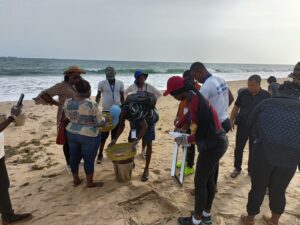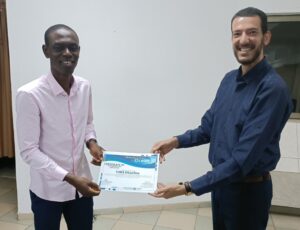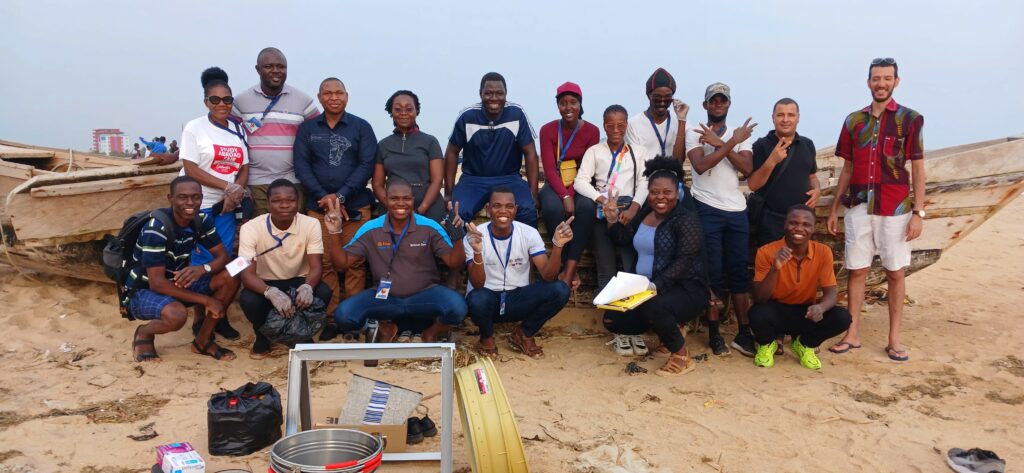During 12 – 25 November 2023 members of ECOP TOGO attended Regional Training Programme on Marine Pollution and biogeochemistry in coastal zones hosted by the LaMERE laboratory from the Department of Physics at University of Kara.
Nippon Foundation (NF) and Partnership for Observation of the Global Ocean (POGO) presented this capacity development initiative, which consisted of an intensive training course aimed at early careers ocean professionals developing their research on marine pollution and coastal biogeochemistry in Middle and Western Africa.
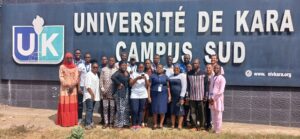
The 12-day training included lectures, hands on exercises and a field trips focusing on Marine pollution, Numerical modeling of pollutants/microplastics transport, Statistics for marine pollution and biogeochemical data analyses, and Monitoring of EOVs and microplastics on surface seawater and sandy beach.
The training expedition took place at the University of Kara, with the coastal haven of Lome playing host to an eclectic mix of learning and hands-on experiences, and was spearheaded by Dr. Essowè PANASSA, Director of the Oceanography department.
Students of the University of Kara’s Oceanography department who are key members of ECOP Togo including Dkawlma Tora were present, and the atmosphere was charged with enthusiasm.
The gathering was truly a melting pot of future ocean talent, drawing participants from the neighboring countries around the Gulf of Guinea, such as Togo, Benin, Cote d’Ivoire, Ghana, Nigeria, Liberia, Senegal. Going beyond this local region, participants were welcomed from further afield, including Kenya, Tunisia, Bangladesh, and Argentina.
Over the span of 12 days, participants immersed themselves in a range of learning experiences, from the practical application of biogeochemical data in ecosystem management to the exploration of microplastics analysis using harmonized operational protocols and FTIR methods. Many opportunities to expand data collection methodologies were presented; navigating through microplastic sampling protocols, diving into statistical methods for comparing sensor data, and performing water quality index calculations.
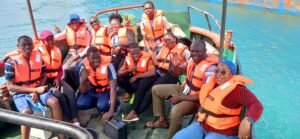
The waves of knowledge kept rolling in through this introductory and immersive voyage into coastal oceanography; covering tides, sea level, currents, and waves. Also included was an initiation into the DELFT-3D numerical model, with a special focus on the flow module.
Dkawlma’s testimonial: “As a participant in the Regional Training Programme on Marine Pollution and Biogeochemistry, I found the experience deeply inspiring. The collaborative atmosphere, coupled with hands-on learning, stimulated my passion for coastal oceanography. This initiative directly addresses Ocean Decade Challenges by fostering cross-border cooperation and knowledge exchange. I’m eager to apply the insights gained, from microplastics analysis to numerical modeling, in my research pursuits. With these new tools and methodologies, I’m committed to contributing meaningfully to the sustainable management of our marine ecosystems and addressing the pressing challenges facing our oceans.”
